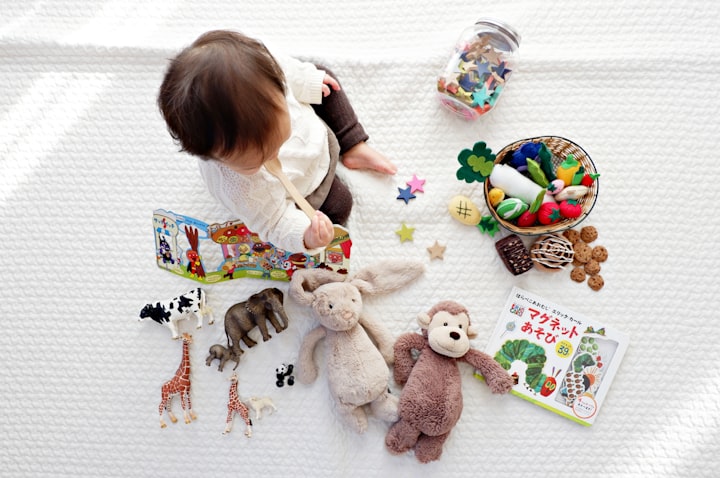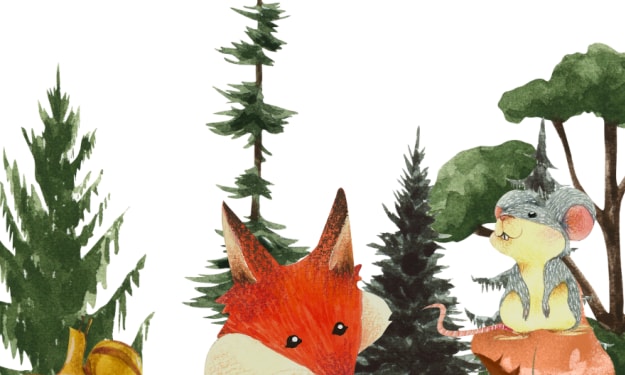The Surprising Benefits of Sibling Rivalry
Fostering Growth, Resilience, and Stronger Bonds

Introduction:
Sibling rivalry is a common phenomenon in many families. From squabbles over toys to arguments about who gets the last cookie, sibling rivalry can often be seen as a negative aspect of sibling relationships. However, in this article, we delve into the surprising benefits of sibling rivalry and how it can contribute to the growth, resilience, and stronger bonds between siblings.
1. Developing Conflict Resolution Skills:
Sibling rivalry provides children with the opportunity to develop essential conflict resolution skills from an early age. Through disagreements and conflicts, siblings learn to communicate, negotiate, compromise, and find mutually satisfactory solutions. These skills are invaluable in their future relationships and interactions with others.
2. Building Resilience:
Sibling rivalry exposes children to challenging situations and emotions, fostering the development of resilience. Siblings learn to handle disappointment, frustration, and jealousy in a supportive and familiar environment. As they navigate through these experiences, they build emotional strength and learn to bounce back from setbacks.
3. Enhancing Social Skills:
Siblings serve as constant companions and playmates, offering opportunities for social interaction and the development of social skills. Through sibling rivalry, children learn important social dynamics, such as taking turns, sharing, and considering others' perspectives. These skills are vital for healthy relationships and interactions outside the family unit.
4. Strengthening Communication Skills:
Sibling rivalry often leads to verbal exchanges and debates. In these moments, siblings practice their communication skills by expressing their thoughts, asserting their needs, and listening to others' perspectives. The ongoing interaction between siblings hones their ability to express themselves effectively and develop active listening skills.
5. Fostering Empathy and Understanding:
Sibling rivalry can teach children empathy and understanding. When conflicts arise, siblings have the opportunity to see situations from each other's viewpoints, understand their feelings, and recognize the impact of their actions. This empathy strengthens their bond and cultivates a sense of compassion towards one another.
6. Learning Negotiation and Compromise:
In the midst of sibling rivalry, children learn the art of negotiation and compromise. They discover the importance of finding common ground and reaching agreements that benefit both parties. These negotiation and compromise skills are essential in various aspects of life, including friendships, academics, and future careers.
7. Sharing Life Experiences:
Sibling rivalry often arises from shared experiences, such as growing up together, attending the same schools, or participating in family activities. While conflicts may occur, these shared experiences also create lasting bonds and fond memories. Siblings share a unique connection and can reminisce about childhood adventures as they grow older.
8. Building Lifelong Support Systems:
Despite the rivalry, siblings often become each other's biggest supporters and allies. As they navigate through life's challenges, they can rely on each other for emotional support, advice, and encouragement. Sibling rivalry, in a sense, strengthens the support system within the family, creating lifelong connections and a sense of belonging.
9. Developing Individual Identities:
Sibling rivalry encourages children to develop their own identities and distinguish themselves within the family unit. As they strive to differentiate themselves from their siblings, they explore their unique interests, talents, and personalities. This individuality contributes to their personal growth and self-discovery.
10. Creating Lifelong Friendships:
While sibling rivalry may be intense during childhood, it often evolves into lifelong friendships as siblings mature. The shared history, understanding, and bond cultivated through rivalry lay the foundation for deep and enduring relationships. Siblings become lifelong friends who provide emotional support, companionship, and a sense of belonging.
Conclusion:
Sibling rivalry, though often viewed negatively, can bring surprising benefits to the lives of children. From developing conflict resolution skills and building resilience to enhancing social and communication skills, sibling rivalry fosters growth, understanding, and stronger bonds between siblings. As parents, it's important to guide and mediate sibling conflicts, encouraging healthy competition and cooperation. Embracing the positive aspects of sibling rivalry can contribute to the development of well-rounded individuals and lifelong relationships within the family.
About the Creator
The Happy Parent
A blog that celebrates the positive aspects of parenting and offers solutions for common problems.






Comments
There are no comments for this story
Be the first to respond and start the conversation.